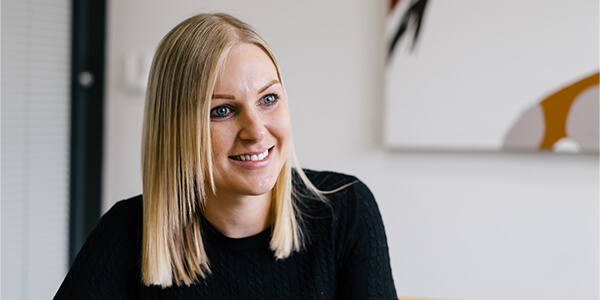
To the untrained eye, insurance is a murky subject. A foreign food. An unknown quantity.
It's as dull as heck too. You might be curious about how it works, but can you really be bothered to find out?
Probably not.
All that adds up to some healthy suspicion and cynicism: we fear what we don't understand and we're indifferent to its motives.
But, we don't think ignorance is bliss. So we're opening up our doors and telling you all about it: the what, why, how, and who of insurance.
It's not as tedious as you might think.
Because a broker's job is to shed light where there isn't any, we'll start with what we do.
Man in the middle
Google 'what does an insurance broker do?' and you'll get answers like: 'acts as an intermediary between the insurer and the client'.
Yep. Sums it up nicely.
But what does that mean? Why is there another link in the chain? Why wouldn't you go straight to the insurer?
Because insurance is complex. And often quite expensive. Sometimes it's a legal requirement.
Can you be sure you're getting what you need? How do you know you're not wasting your money? Who's going to tell you otherwise? The insurer? Not likely, and in most cases they're not allowed to anyway (thanks, FCA).
So what are your options? Well, you could spend a couple of grand and sit the Chartered Insurance Institute's exams.
Or you could use a broker who's already done that.
Passing those exams makes them a qualified expert – one that's perfectly placed to tell you what insurance you need and why you need it. And then go about finding it for you.
And once they've found potential policies, wading through the wordings and decoding everything is their job, not yours.
Getting expert help with something complicated makes sense. After all, you wouldn't drive a car without knowing what the pedals do, would you?
Broking point
Insurance brokers range from massive multinationals to one-man bands just around the corner. Between them, they find cover for everything from satellites to garden gnomes.
Ostensibly quite different, their knack of matching a risk to an insurer is their similarity. At any level, a broker recognises when you can't tick all the insurer's boxes and does something about it. They get cover on your terms, not the insurer's.
Take us as an example. We offer professional insurance to small businesses, freelancers, and charities.
Like most brokers, we specialise. That's a good thing because a) we get to know our customers' businesses inside out, and b) insurers have faith we know what we're doing.
If a customer isn't happy with either the cost or a clause in the cover, we'll negotiate with the insurer on their behalf. Likewise, if the insurer is wary of a risk, we'll give them comfort by finding out more about the customer's business.
Demonstrating this know-how means insurers give us better prices and more flexible policy terms. And that means our customers get fit-for-purpose insurance at the right price.
In some cases, insurers have enough faith to give us something called a 'binding authority'.
That means we bypass the whole middleman thing by setting our own questions and prices, writing and issuing documents, making mid-term adjustments, and managing some claims in-house. We do everything.
We become a bit like an insurer. Just a less intimidating, more easily understood one.
That said, it's not always so straightforward, and sometimes we need to revert to type. Finding an insurer for an unusual risk can be a challenge but that's a broker's USP.
Using behind-the-scenes expertise, market knowledge, connections, networks, relationships, and our gift of the gab, we find the right cover when the customer can't.
That's really what a broker does.
A bold claim
Getting the right cover at the right price is only half the story, of course.
You have insurance to avoid the financial impact, legal hoo-ha, and material inconvenience of something going wrong in your business.
When it does go wrong – and you claim – you need all the help you can get.
Thankfully a broker represents you, not the insurer. It's their job to look after your interests.
For example, professional indemnity and public liability insurance claims are unsettling, time-consuming, and complicated. If you're caught up in one, your broker is your ally. They'll keep an eye on the claim's progress, making sure everything happens when it should while lending a sympathetic ear, a shoulder to cry on, and a mouthful of good advice.
They understand the technicalities of your insurance and, in the event of a disputed claim, can argue the case on an equal footing with the insurer. They might not always succeed but they always have more clout than you. So it's worth a try.
The benefit of that insider knowledge shouldn't be underestimated. A good, respected broker really can make the difference between an insurer paying a claim and not.
One day you might be quietly chuffed you used one.
We know a pretty good one too (yes, it's us)... need help with your business insurance? Give us a call on 0345 222 5391.
accountantsarchitectsinsurance explainedIT contractorsmanaging riskmarketing and advertising
